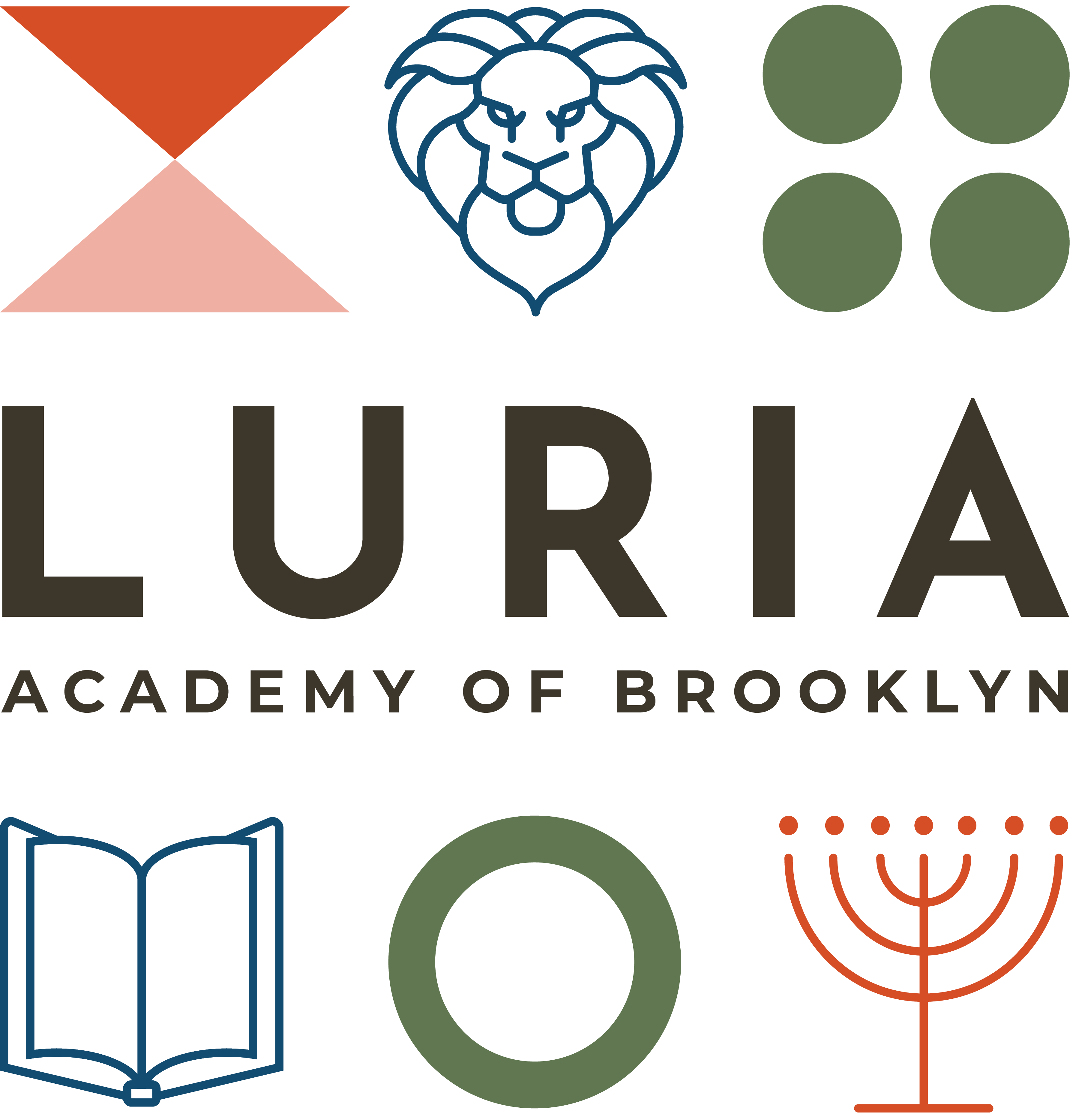The Luria Primary School curriculum combines General Studies, Judaic Studies and Hebrew Immersion through a child-centered and cross-curricular approach to learning. We follow the Montessori method combined with use of NYS Standards and Developmentally Appropriate Practices, and track student development and progress through careful observation and documentation. We use Montessori materials in our classrooms, which are explored through whole group, small group, and individual activities. We use mixed age groups, placing children into leadership roles and allowing children to learn from their peers. These mixed age groups enable us to support children’s development based on their abilities as opposed to age or grade level.
Each classroom is divided into eight primary areas: Practical Life, Sensorial, Math, Language, Cultural Subjects (Science and Social Studies), Art, Hebrew, and Judaic Studies. The materials in each area are based on the needs, levels, and interests of children.
Each classroom is divided into eight primary areas: Practical Life, Sensorial, Math, Language, Cultural Subjects (Science and Social Studies), Art, Hebrew, and Judaic Studies. The materials in each area are based on the needs, levels, and interests of children.
Lower School Overview
At Luria, we educate the whole child and develop curriculum that supports each individual child's cognitive, emotional, moral, and social development. Teaching and Learning at Luria is student centered. SCI (student-centered instruction) focuses on skills and practices that enable lifelong learning and independent problem-solving. We strive to develop learner independence by providing skills for how to learn and supporting students to create their own schemata, or episodic memory, to allow for deep meaning. Student-centered learning emphasizes the student’s role in synthesizing meaning from new information and prior experiences.
Luria Academy implements an academically challenging curriculum in a calm and intentional environment. At Luria we work hard to strike a balance between academic rigor and respecting the pace of an individual child's development. The curriculum is sequential and children move through it at their own pace; progress is carefully tracked based on New York State Standards. Our integrated curriculum is held to the highest academic standards and is executed in a way that encourages critical thinking, deductive and inductive reasoning, peer cooperation, and personal responsibility. Luria places a premium on creating a culture of compassion in the classroom. We believe a rigorous curriculum can, and must, include and accommodate children with special needs.
Luria Academy implements an academically challenging curriculum in a calm and intentional environment. At Luria we work hard to strike a balance between academic rigor and respecting the pace of an individual child's development. The curriculum is sequential and children move through it at their own pace; progress is carefully tracked based on New York State Standards. Our integrated curriculum is held to the highest academic standards and is executed in a way that encourages critical thinking, deductive and inductive reasoning, peer cooperation, and personal responsibility. Luria places a premium on creating a culture of compassion in the classroom. We believe a rigorous curriculum can, and must, include and accommodate children with special needs.




